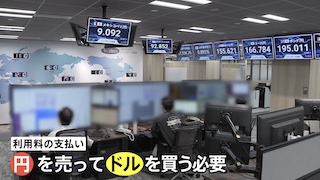TOKYO, May 11 (News On Japan) - Payments for digital services provided by overseas IT giants have emerged as a new factor contributing to the yen's decline, reports economic journalist Ideguchi.

The hidden cause of the yen's persistent weakness, beyond what can be addressed by currency intervention or changes in monetary policy, is the "digital deficit."
The digital deficit refers to the shortfall incurred by Japanese companies and individuals from using digital services provided by international IT giants like GAFA (Google, Apple, Facebook, Amazon). This deficit has continued to grow, reaching 5.4 trillion yen last fiscal year.
While Japan has been advancing in digitalization, the majority of the services used originate from companies like GAFA, leading to a significant outflow of Japanese money overseas.
Moreover, this digital deficit could further accelerate the depreciation of the yen. This is because paying these overseas companies involves selling yen to purchase dollars.
Last week, the yen hit a 34-year low at 160 yen to the dollar. As long as Japan remains dependent on foreign digital services, it appears locked in a structure from which it cannot escape.
Developing Japanese digital services that can compete with GAFA is a significant challenge in preventing the outflow of funds.
Source: TBS














